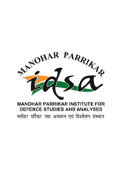Lessons from Egypt: do not underestimate the power of peaceful Satyagraha and the Internet
The people’s movement, in bringing down the former President Hosni Mubarak, has once again showed the power of peaceful protest and ideas. There are many lessons to be learnt from the transformative developments.
- Arvind Gupta
- February 14, 2011











